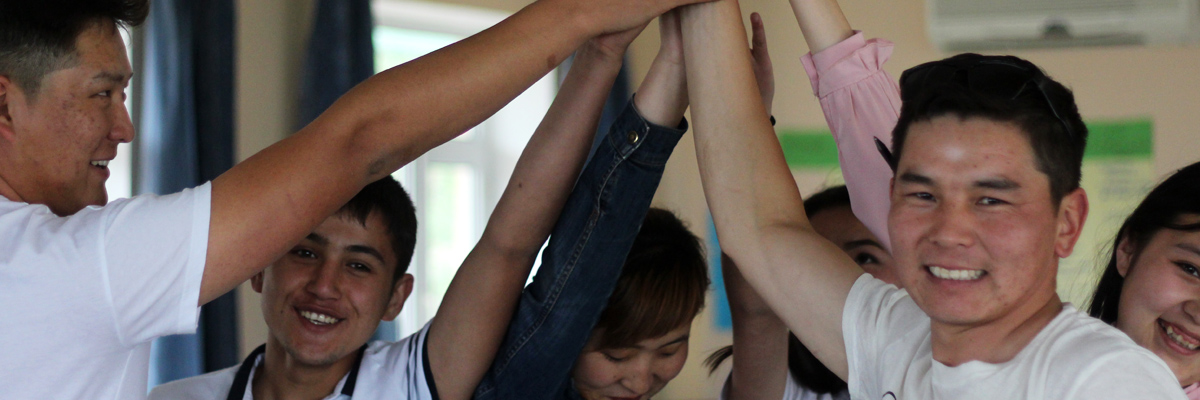Besides a capacity building component, peace initiatives will be developed by young people in the participating communities addressing a variety of conflict situations. Furthermore, a strong focus is put on facilitating a dialogue between civil society actors and state officials, on local and national level, on how to work together on conflict transformation efforts.
Project Goals
The overall aim of the project remains also in the second phase to contribute to a more cohesive Kyrgyz society through increasing the quality and acceptance of non-violent conflict transformation activities in all seven regions of Kyrgyzstan. The already trained PCCs (Peace and Conflict Consultants) will further advance their competences in conflict transformation and the scope of young people receiving trainings in this sphere will be widened through a multiplier training and subsequent local workshops.
The project also aims at increasing the cooperation between civil society and public bodies on national and local level in the field of non-violent conflict transformation. Last but not least our Kyrgyz partner will be enabled to independently make use of the developed competences and to run nationwide peacebuilding projects in the future.
Target Groups
The project has three main target groups: First of all, we will continue working with the already trained PCCs (Peace and Conflict Consultants). They will receive advanced trainings in conflict transformation as well as peace project design and will act as multipliers for young people in their surroundings.
Secondly, young people in the communities of the PCCs will be involved as participants of local workshops in conflict transformation. Thirdly, the project involves representatives from state institutions and public administration in all stages of the process through round tables and community meetings.
Activities
The activities are categorized in four components. Within the “Capacity Building in Conflict Transformation” package, advanced training in conflict transformation and peace project design as well as local workshops will be organized.
The second component “Peace Initiatives” consists of a detailed conflict analysis and stakeholder mappings within the communities of the participants and the subsequent development and implementation of peace initiatives addressing the identified issues.
Within the third component “Dialogue between civil society and state”, two national roundtables as well as 10 community meetings will be organized. During these events the developed peace initiatives will be presented, discussed and potential for cooperation explored.
The fourth component “Organisational Development” consists of several workshops with the aim to establish a nationwide trainer plattform, which will offer trainings in conflict transformation to interested stakeholders on a long run.
Outcomes / Achievements
During the course of the project, our Peace and Conflict Consultants have advanced their competences in conflict transformation and passed on their knowledge to 200 young people from their community.
Furthermore 10 peace initiatives are developed and implemented, covering topics such as inter-ethnic relations, tensions between secular and religious groups as well as inter-regional conflicts. The initiatives will consist of approximately 40 events in all seven regions of the country, reaching out to at least 800 beneficiaries.
During the accompanying dialogue measures, 120 staff from local administration will have participated in community meetings and 20 representatives from the national level took part in the round tables in Bishkek.





